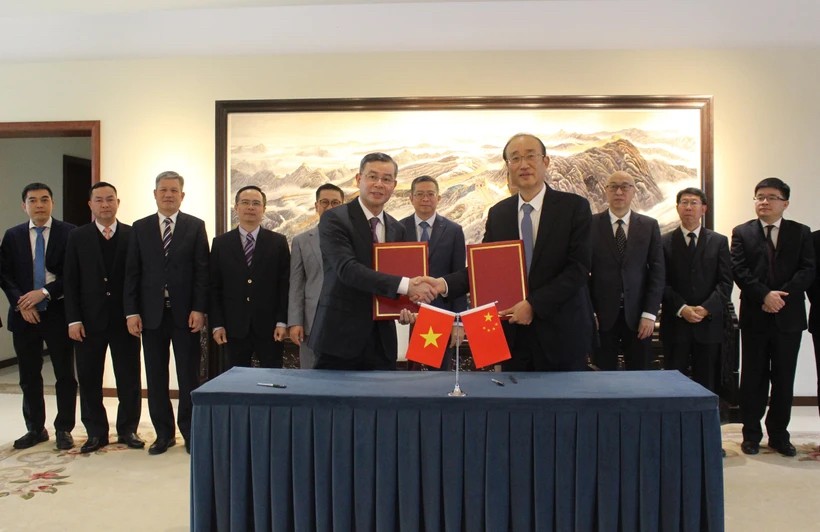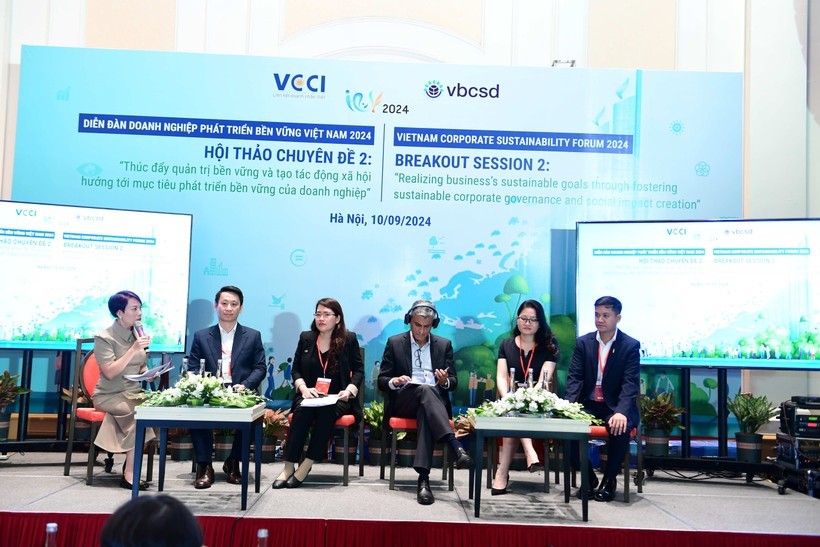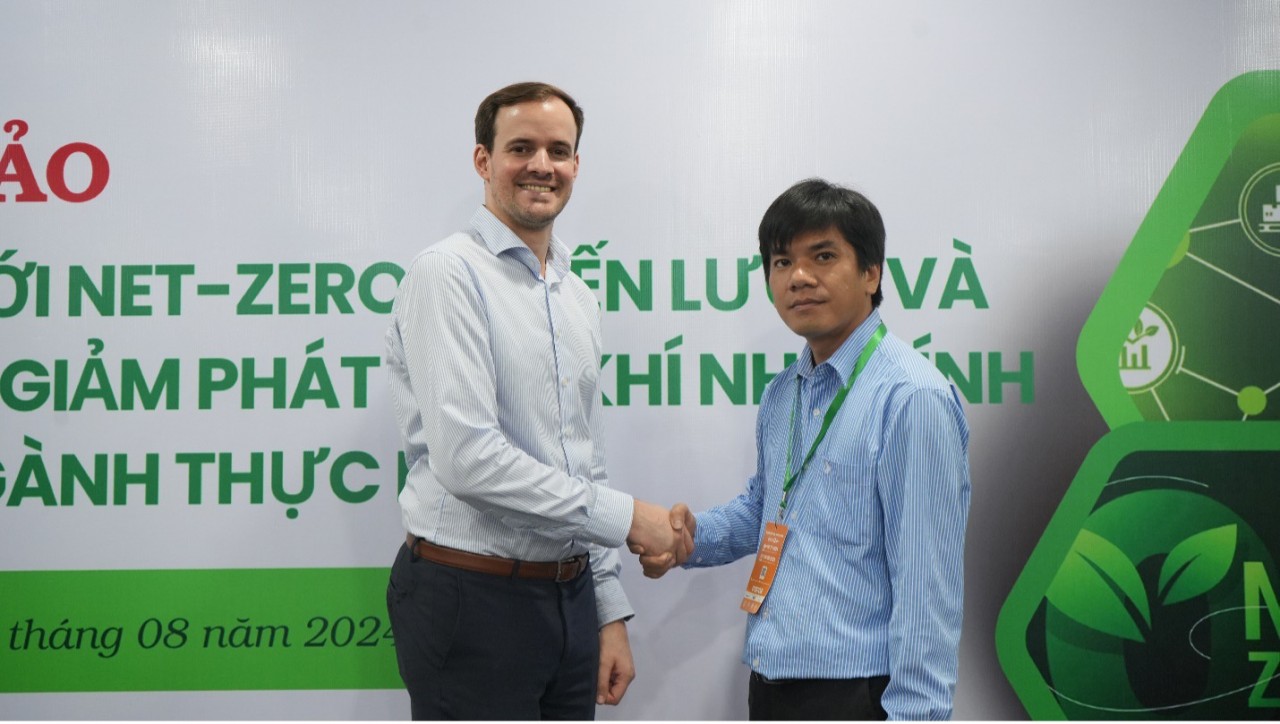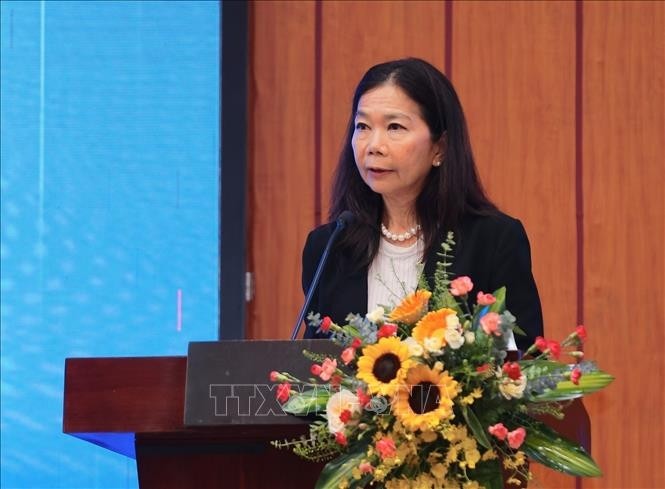Vietnam, UK to Explore Potentials of New Technologies for Net Zero 2050
| Vietnam, UK Commit To Fostering Multifaceted Economic Partnership | |
| Vietnam, UK to Actively Deepen Strategic Partnership |
This hybrid workshop gathered scholars, scientists, and researchers from the UK and Vietnam. The main speakers included professors and doctors from ICL, the University of Warwick, Newcastle University, Hanoi University of Science and Technology, and Vietnam National University. Their expertise spans physical chemistry, material technology, chemical technology, energy control and management, electrochemistry, mechanics, and materials.
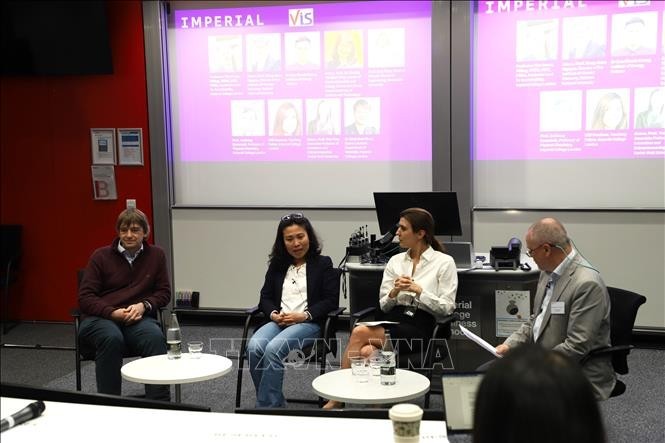 |
| Scientists participated in the workshop's discussion session. (Photo: VNA) |
During the event, speakers shared new technologies, research findings, and practical experiences from Vietnam and the UK in three key areas, including decarbonizing industry, the production and conversion process of green hydrogen, and battery management and storage.
The discussions also addressed the challenges and solutions for achieving the Net Zero goal, with a particular focus on renewable energy, green hydrogen, energy storage, industrial decarbonization, infrastructure, circular economy, and climate finance in Vietnam. Furthermore, the speakers explored the challenges related to policy, investment, and capital mobilization in Vietnam's energy transition process and its carbon market.
According to Associate Professor Yen Tran, a member of the VIS Executive Board and head of the event’s organizing committee, the workshop is one of VIS's initiatives to leverage and promote the expertise and knowledge of its members working at universities across the UK. The aim is to connect the scientific communities of both countries.
"The goal of reaching Net Zero by 2050 is a global issue, not just a national one. This forum will benefit Vietnamese scientists, both domestically and in the UK, by providing a more thorough understanding of technological advances and achievements related to Net Zero," said Associate Professor Yen Tran.
The event was co-organized by ICL, a world-leading university in technology and science, particularly in sustainable development, clean technology, and environmental technologies. This serves as a bridge for scientists from both countries to discuss and exchange the latest technologies in the UK related to Net Zero, their applicability to Vietnam, and experiences in policy, governance, and innovation in the energy transition process.
"Vietnam can learn from the UK in areas such as green hydrogen production, energy storage technology, and other technological solutions while also seeking funding for projects. Currently, in the UK, there are many funds and organizations willing to sponsor and provide advice for projects in green energy and sustainable development," added Associate Professor Yen Tran.
| The workshop took place in the context of both Vietnam and the UK having made significant commitments to addressing the major challenges of climate change and aiming for a sustainable future. Both countries have participated in the Just Energy Transition Partnership (JETP) agreement with the goal of achieving Net Zero by 2050. In recent years, Vietnam has been one of the leading countries in the Asia-Pacific region in decarbonization efforts through the rapid implementation of its renewable energy program. |
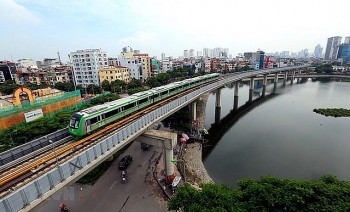 | Vietnam Pledges to Realize Commitments At COP26 Vietnam is actively implementing international commitments, especially commitments since the 26th United Nations (UN) Climate Change Conference of the Parties (COP26). |
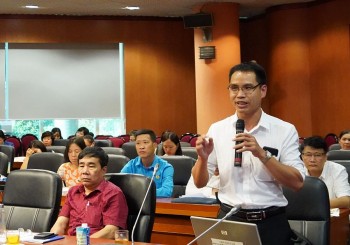 | The Role of Circular Economy in implementing Vietnam's Net Zero goal A circular economy helps take advantage of used raw materials instead of consuming processing costs, minimize exploitation, and make the most of natural resources. It ... |
Recommended
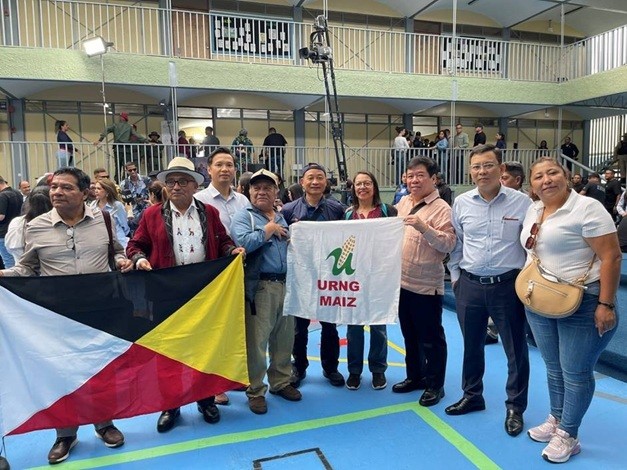 Focus
Focus
Strengthen Solidarity and Friendship Between Vietnam and Venezuela
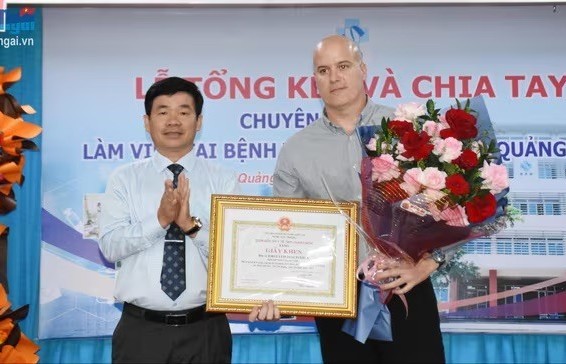 Friendship
Friendship
Quang Ngai Recognizes Cuban Health Experts' Contributions to Mother and Child Care
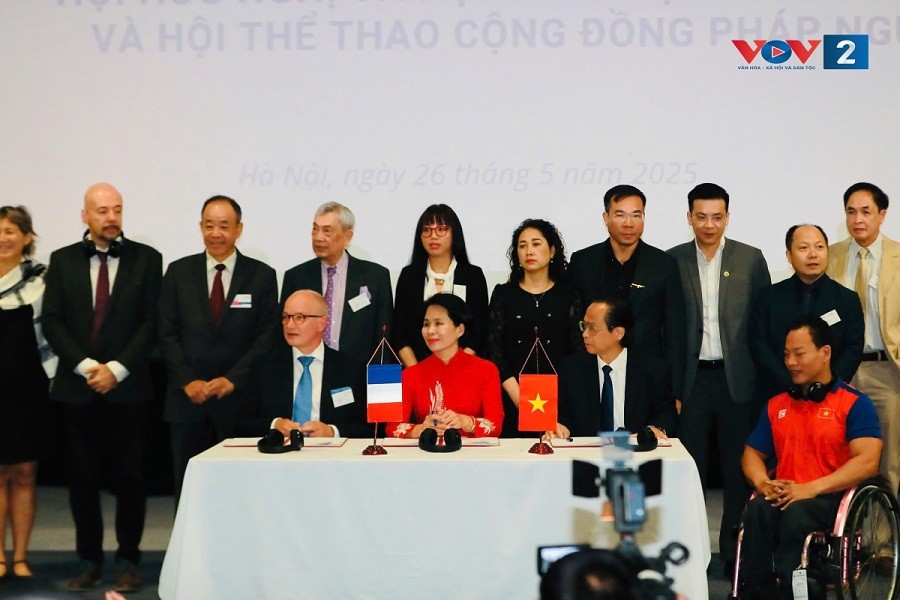 Friendship
Friendship
Vietnam, France Promote High-performance Sports
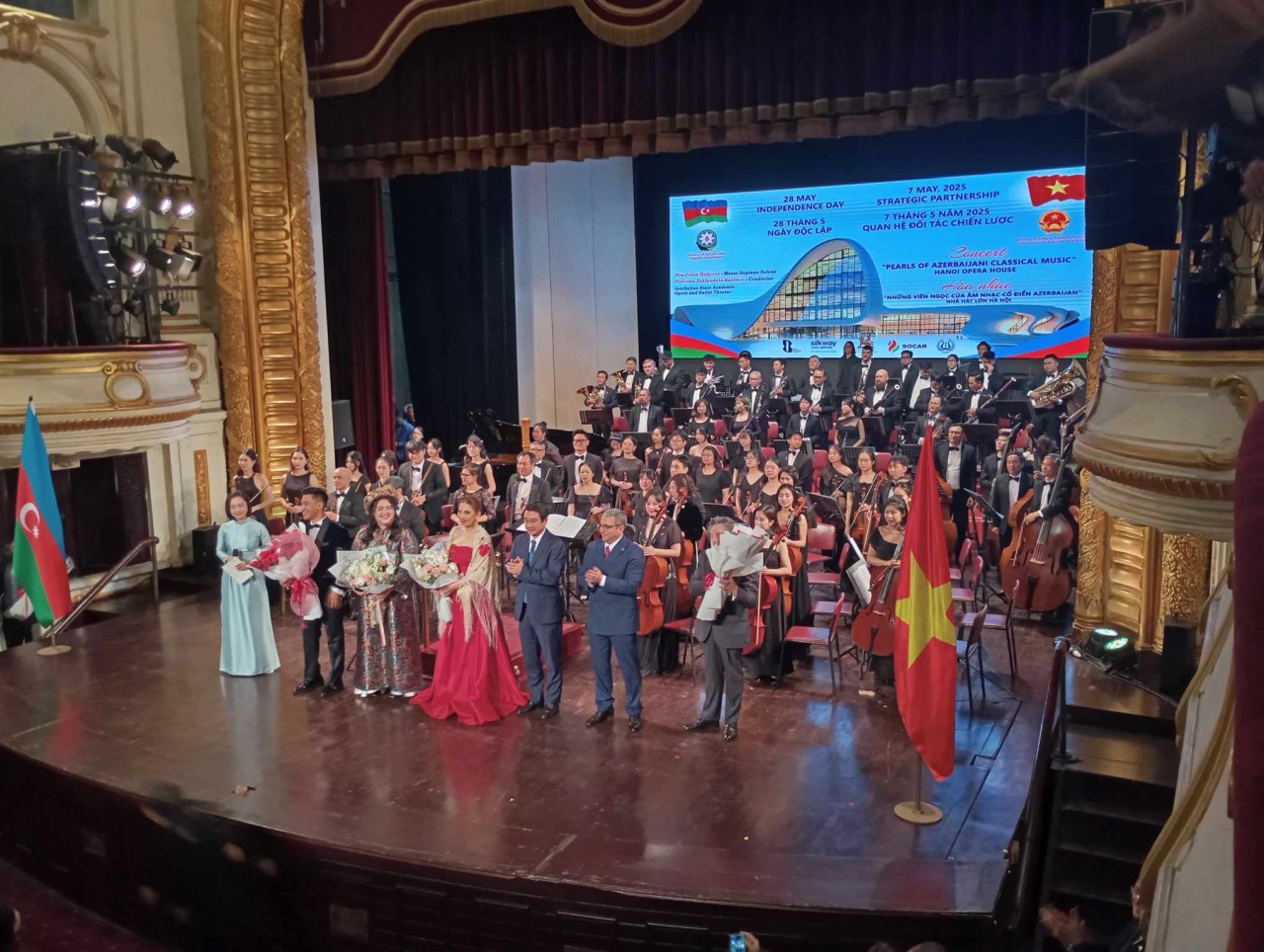 Friendship
Friendship
Concert In Hanoi Highlights Vietnam - Azerbaijan Ties
Popular article
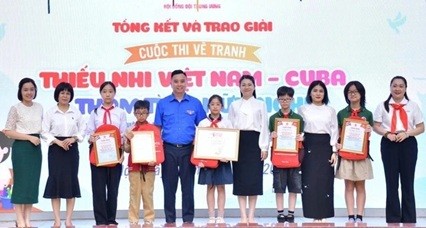 Focus
Focus
"Vietnamese - Cuban Children, Deep Friendship" Painting Contest Announces Winners
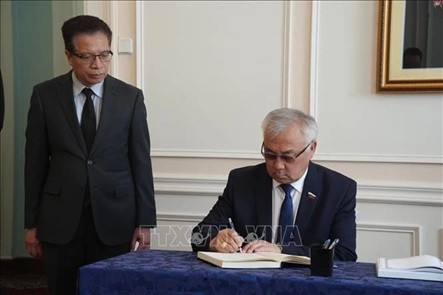 Friendship
Friendship
Int'l Friends Pay Final Respects to Former President Tran Duc Luong
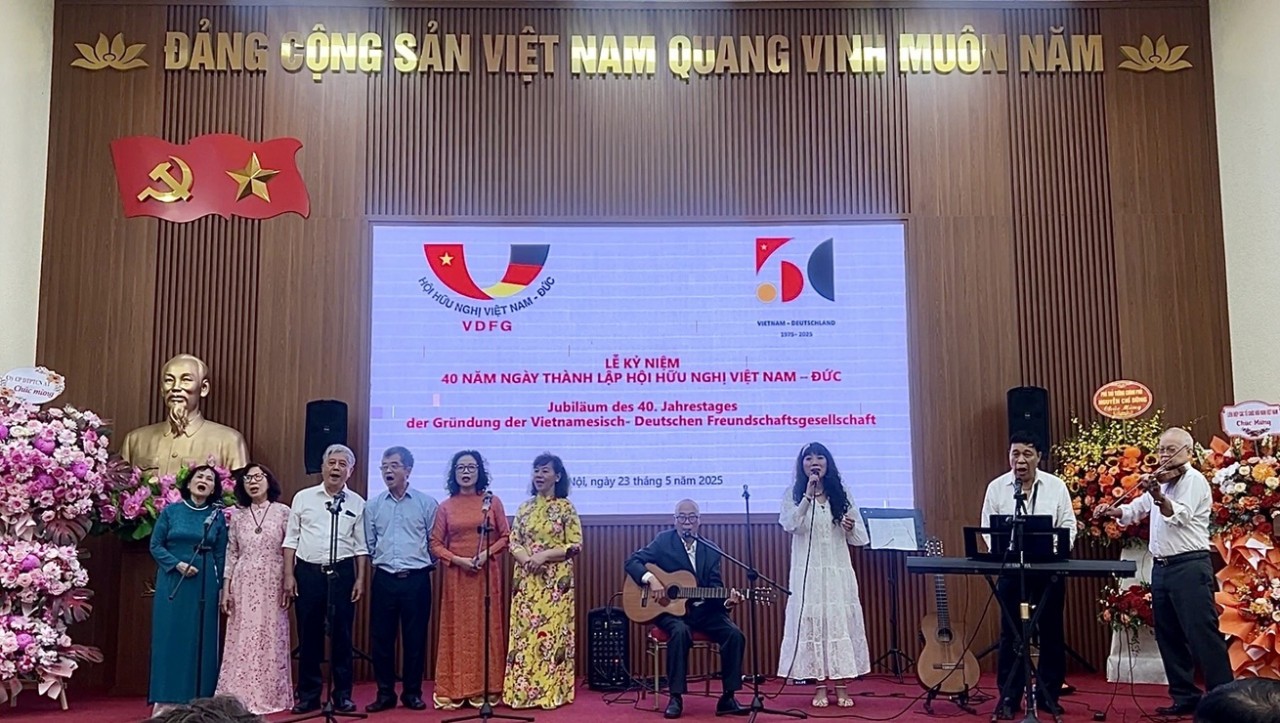 Focus
Focus
Solid Bridge for People-to-people Relations between Vietnam and Germany
 Friendship
Friendship




